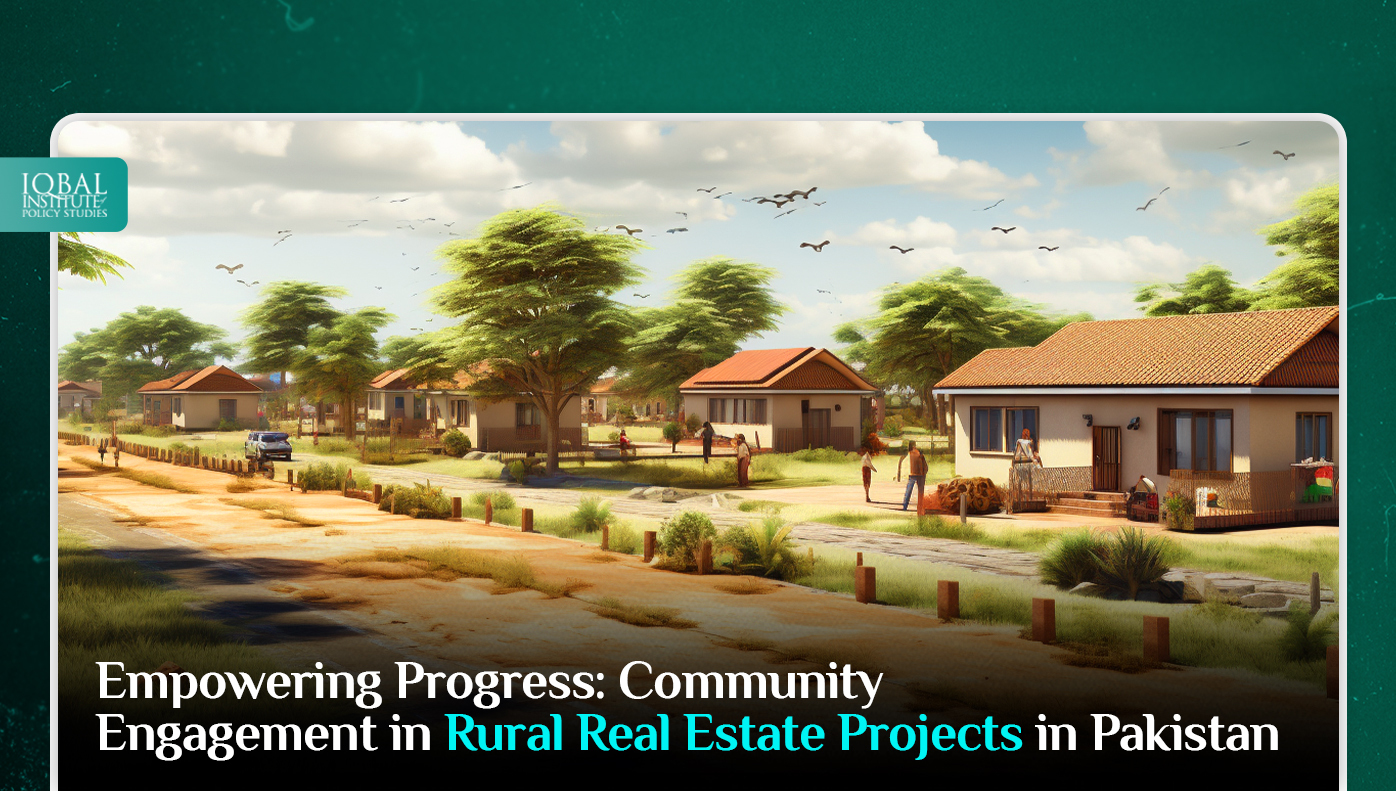The landscape of rural Pakistan is a tapestry of diverse cultures, traditions, and untapped potential. Realizing this potential requires more than just brick and mortar; it demands a collaborative approach that places community engagement at the heart of rural real estate projects. In the pursuit of sustainable rural development, the role of local communities in the planning, execution, and management of real estate initiatives cannot be overstated. This blog delves into the profound significance of community engagement in rural real estate projects in Pakistan, exploring its multifaceted benefits and sharing inspiring examples of success.
The Power of Inclusion
Community engagement goes beyond a token gesture—it is a philosophy that values the wisdom and aspirations of local residents. Rural communities are not passive recipients of development; they are active stakeholders with an intimate understanding of their needs and resources. By involving them in the decision-making processes of real estate projects, developers can harness this invaluable local knowledge to create developments that are not only economically viable but also culturally sensitive and socially enriching.
Shared Vision and Ownership
Community engagement nurtures a shared vision for development. When local residents participate in the planning phase, they develop a sense of ownership over the project. This sense of ownership extends to ongoing maintenance, which is crucial for the longevity of rural real estate initiatives. A project that is co-owned by the community is more likely to be cared for and nurtured, reducing the risk of neglect or deterioration.
Cultural Sensitivity
Pakistan’s rural areas are a mosaic of cultures and traditions, each deserving of respect. Community engagement allows developers to understand and incorporate cultural nuances into their projects. By doing so, real estate developments can seamlessly blend modernity with tradition, creating spaces that reflect the identity of the community while addressing contemporary needs.
Improved Acceptance and Cooperation
Involving the local community from the outset mitigates the risk of opposition or conflicts that can stall or derail projects. Community engagement leads to a higher degree of acceptance and cooperation, streamlining administrative processes and expediting project execution. When the community is actively engaged, developers have access to valuable local resources and expertise that can smoothen the path to success.
Real-Life Success Stories
Throughout Pakistan, numerous rural real estate projects have successfully harnessed the power of community engagement to achieve transformative outcomes:
Agritourism Ventures
In regions like Punjab and Khyber Pakhtunkhwa, farmers have joined hands with developers to create agritourism destinations. These ventures not only generate additional income for farmers but also educate visitors about farming practices, food cultivation, and local culture. This collaborative approach fosters a sense of community pride and boosts the local economy.
Community-Owned Solar Power Initiatives
In rural Sindh, where electricity access is often limited, community engagement has catalyzed the development of solar power projects. These initiatives are not only environmentally sustainable but also economically empowering, creating jobs and generating revenue for local communities.
Eco-Friendly Housing Cooperatives
In regions like Gilgit-Baltistan and Azad Kashmir, eco-friendly housing cooperatives have emerged as a solution to the housing challenges faced by rural residents. Community members actively participate in the design and construction of homes that align with their preferences and respect the environment. This collaboration fosters a sense of pride and ownership in the community.
Water Management Committees
In arid regions such as Balochistan, community engagement has led to the formation of water management committees. These committees oversee the equitable distribution of water resources, leading to enhanced water conservation efforts and a reduction in conflicts over access to water.
Engagement Strategies for Success
Effectively engaging rural communities in real estate projects requires a thoughtful and inclusive approach:
Early Involvement
Engage local communities from the project’s inception, involving them in crucial decisions such as site selection, design, and project planning. This early involvement lays the foundation for a successful partnership.
Open Communication
Maintain transparent and open lines of communication throughout the project’s lifecycle. Encourage community members to voice their concerns, ideas, and suggestions, and respond in a timely and respectful manner.
Capacity Building
Empower community members by offering training and skill development opportunities. This not only enhances their ability to contribute meaningfully to the project but also equips them with valuable skills for the future.
Sustainability
Focus on projects that provide lasting benefits to the community, such as job creation, improved infrastructure, increased income opportunities, and enhanced quality of life.
Conclusion
In the realm of rural real estate development in Pakistan, community engagement is not a mere strategy—it is the bridge that connects aspirations to achievement. By recognizing the significance of local insights, culture, and aspirations, real estate projects can achieve financial success while leaving an indelible positive mark on the lives of rural residents. Through collaboration, shared vision, and a resolute commitment to empowerment, community engagement has the potential to usher in a new era of sustainable rural development in Pakistan. It is a journey toward progress that is powered by the people it aims to uplift.
This article is written by Maha Nazami. Maha is a research analyst at the Iqbal Institute of Policy Studies (IIPS).



Leave a Reply